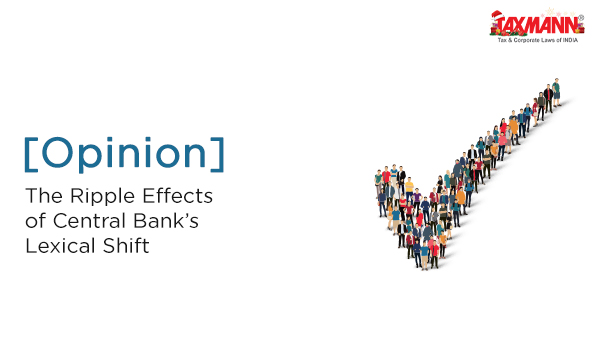
Harshith Sharma – [2023] 157 taxmann.com 626 (Article)
Indian legislative framework is often characterized by a domino effect, wherein an amendment in one sphere of law obliquely or otherwise resonates across various legislative realms. The Central bank’s recent subtle shift in nomenclature, substituting “interest” with “charges,” not only reaffirms this intricate interplay but also serves as an eloquent illustration of the sophisticated interconnectedness embedded within the Indian legal framework.
Background
Financial institutions in their ordinary course of business activities extends loans to customers by levying interest in return. Further, as a normal practice the financial institutions additionally levy penal interest in case of non-adherence with any material conditions of the agreed terms, such as default in payment of installments in the agreed time frame. This penal levy served a dual purpose: neutralizing the impact of time value of money and inculcating a sense of discipline in borrowers.
Lately, the central bank in a surprise move vide correspondence dt: 18/08/2023 has directed the financial institutions to cease from levying penal interest for the aforesaid non compliances and has directed to levy penal charges instead of penal interest. This shift in nomenclature could have miniscule consequences in the parent legislation but from GST standpoint this amendment has manifold implications, few salient of them are unveiled below.
GST
It is of common knowledge that services of extending loans and advances in so far, the consideration is represented in from of interest or discount, is exempt from the levy of tax vide entry no 27 of notification 12/2017.
Further, the term interest as defined in the said notification reads as
“interest payable in any manner in respect of any moneys borrowed or debt incurred (including a deposit, claim or other similar right or obligation) but does not include any service fee or other charge in respect of the moneys borrowed or debt incurred or in respect of any credit facility which has not been utilized.”
Resultantly, hitherto by virtue of the aforesaid exemption entry the levy of interest including the penal interest would have eluded the levy of GST.
However, in the aftermath of the amendment, the question lingers is whether the exemption entry is wider enough to encompass the revised levy of penal charges within its ambit? To discover our perspective, continue delving into the ensuing paragraphs.
Test of Supply
The first test for any transaction to gravitate within the perimeter of GST lies in meeting the criteria of supply. However, considering the all-encompassing definition of the supply of service it is more likely that the service would qualify this litmus test. This likelihood galore due to the presence of separate and distinct consideration for the supply.
Click Here To Read The Full Article
The post [Opinion] The Ripple Effects of Central Bank’s Lexical Shift appeared first on Taxmann Blog.
